First of all, it must be affirmed that the minimalist lifestyle hardly has a 'standard formula' that is suitable for everyone.
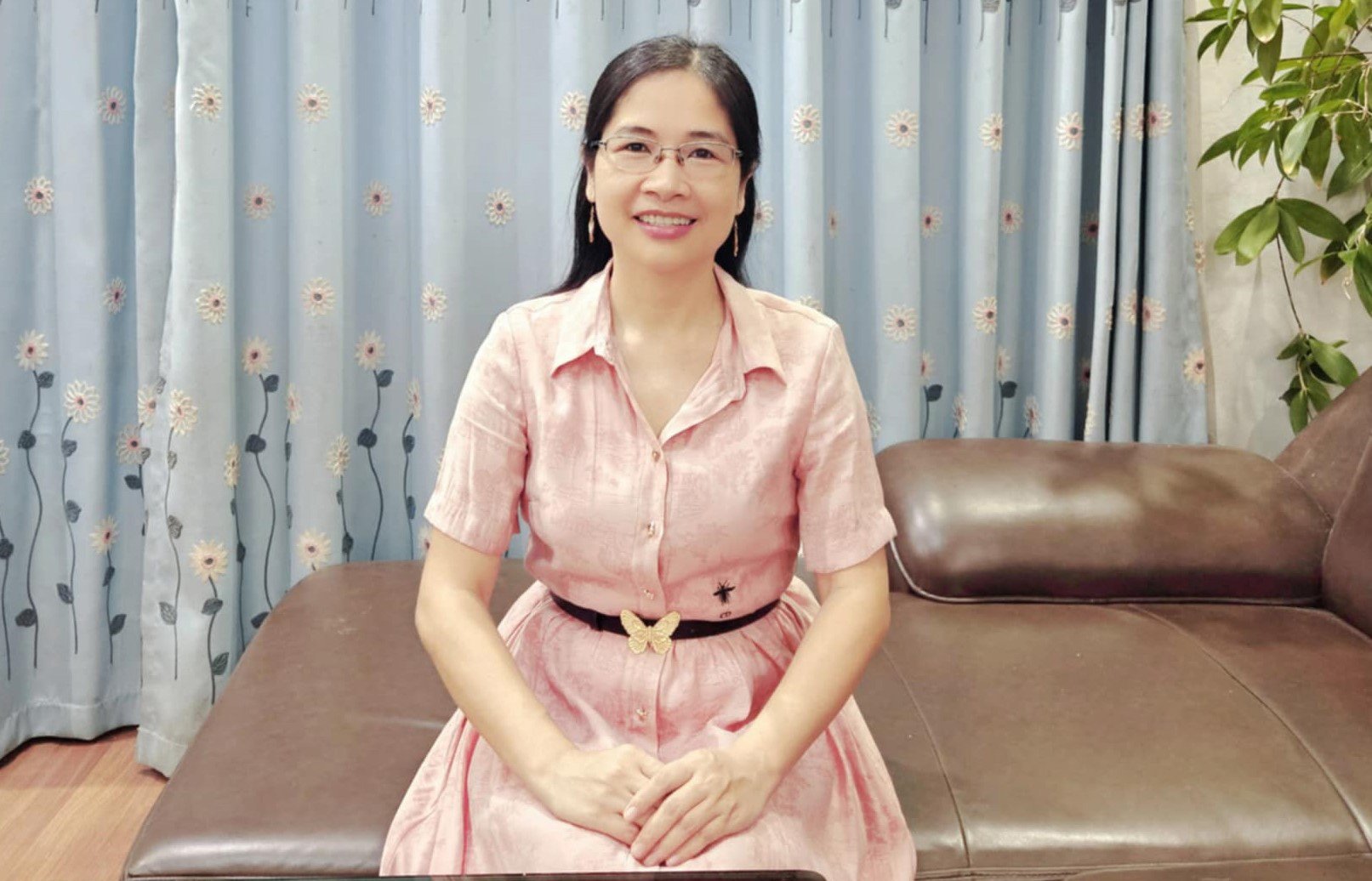
Dr. La Linh Nga - Photo: NVCC
Depending on living environment, job, personal conditions, goals and passions, each person can choose a suitable and comfortable lifestyle for themselves as well as contribute to society.
It is especially difficult to pursue a minimalist lifestyle nowadays in a context where everything stimulates consumption and shopping is increasingly convenient.
Sharing with Tuoi Tre , Dr. La Linh Nga, director of the Center for Research and Application of Psychology and Education, said that to limit frivolous shopping, drastic and serious action is needed, and awareness alone is difficult to do.
Minimalism will continue to grow
Dr. La Thi Nga said: "Living a minimalist life is not easy when people often get caught up in the joy of shopping, even addicted to owning things. But if anyone follows a minimalist lifestyle and wants to reduce wasting money, even just a part of it, they will see their life become more positive and they will be more satisfied with their life."
* Recently, the trend of minimalist consumption, using only what you have, is emerging among young people around the world, from countries in the Americas to Asia, including Vietnam. What is your perspective on this trend and in your opinion, why are young people turning to minimalism?
- Some of my friends and I are interested in minimalist lifestyle and have been aiming for it for a long time. Minimalism is removing unnecessary details and unnecessary items, keeping only the important things. It is quite suitable for the current context when people are constantly caught up in the cycle of this and that, making the living space quite cramped, stuffy and tiring.
In my opinion, the main reason for minimalist living is that people have too much stuff, are tired and bothered with cleaning, finding space for all this stuff. Realizing that living space is becoming cramped and costing too much, people will ask the question of whether buying so much is necessary, whether they are wasting.
In addition, buying something that is only used a few times and then thrown away also affects the outside environment. Therefore, many people choose minimalism as a way to protect the environment, aiming for a sustainable lifestyle. I think this trend is suitable for the times and it will continue to develop.
I clearly see that when people feel mentally tired and worried about everything, switching to a minimalist lifestyle and reducing their belongings will quickly make them feel lighter, less anxious and worried, and help improve their mental health.
* Shopping has almost become a minimal economic activity. If everyone lives a minimalist life, how will the economy be affected, madam?
- In terms of economy, minimalist lifestyle affects immediate growth. If everyone is minimalist, the economy will have an impact, especially in industries that serve people's fast-paced lives. However, in the long run, we will see that minimalism here does not mean not buying anything, but rather aiming for quality, durable, and clean items. It belongs to sustainable development. Values related to minimalist living will also be born.
The core of minimalism is to prioritize what is most valuable to your needs. Buying multi-functional, multi-use items is a good way to pursue this lifestyle. Slow down, think longer to choose to buy quality, multi-functional equipment that best serves your life without taking up too much space or quantity.
* Can you share your experience in pursuing a minimalist lifestyle?
- Many of my clients are often encouraged to clean up the clutter in their rooms to free their minds. They need to sort out which items they will use and which items are no longer valuable to them and give them away. By directly sorting and examining their belongings, they will understand what they want and need. Each psychological stage also affects this.
Besides, to classify, you should write down your items into a checklist. When you list them, you will see them clearly, or when you want to buy them, you will know if they are important or not. Sometimes, if you don't write them down, just mumble them in your head, it is easy to forget.
When faced with an item, don't rush to buy it right away, but wait a few days to consider and feel if it is really necessary. We are easily influenced psychologically, especially when following the crowd, watching people buy something for a while, we will be drawn in or often influenced by trendy items that many people buy.
To limit frivolous shopping, I have to proactively avoid it and spend time on other useful entertainment or learning activities instead of surfing the shopping page every day. In addition, I also need to turn off notifications from shopping apps and not go to the app to look at products frequently.
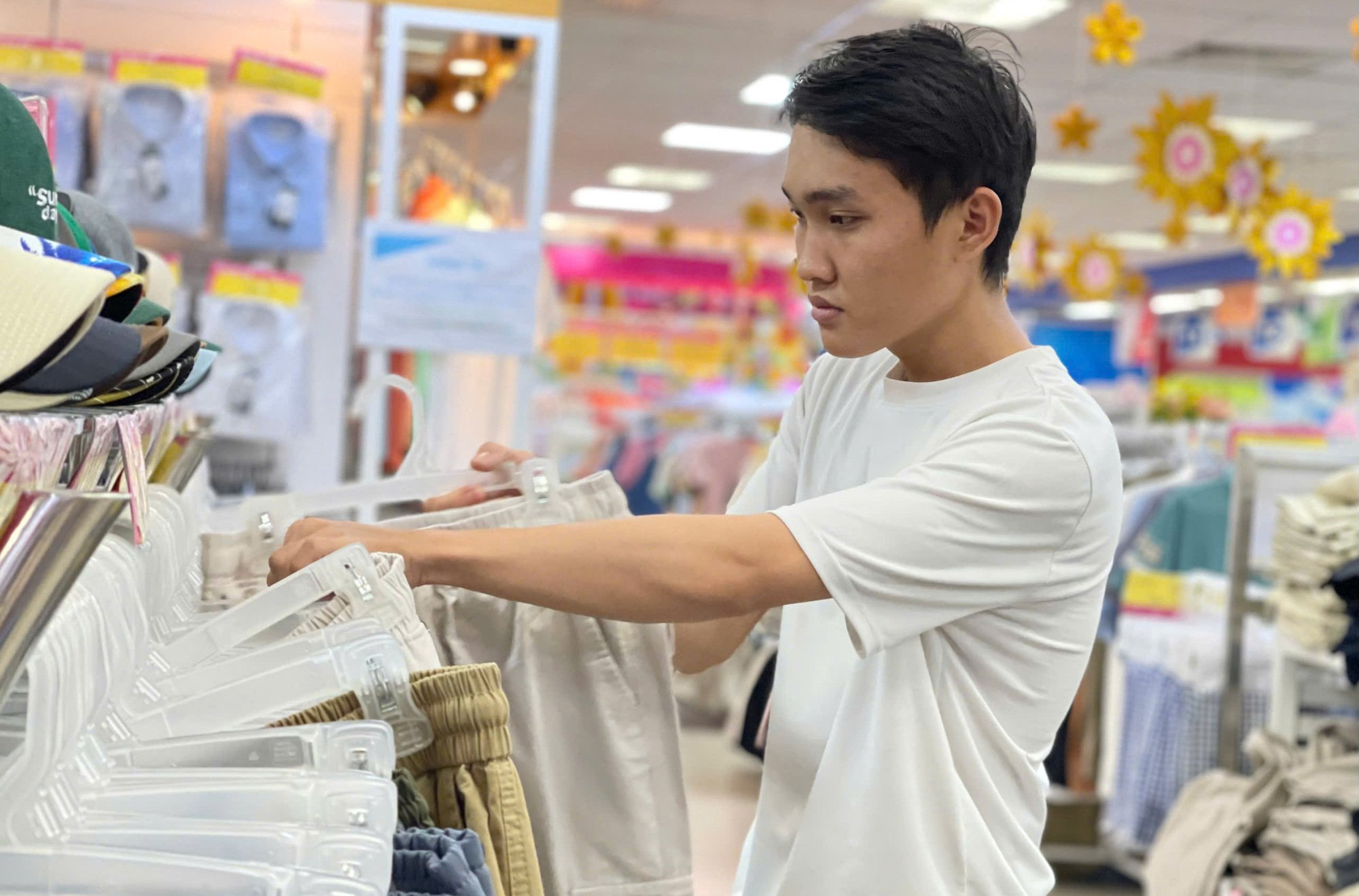
Pursuing a minimalist lifestyle, streamlining belongings and saving, young people need to consider before shopping - Photo: DIEU QUI
"Prescription" for people who want to live a minimalist life
In the book Japanese Minimalist Lifestyle, author Sasaki Fumio states that minimalist lifestyle is understood as limiting yourself to the bare minimum and cutting down on your belongings, throwing away everything except the important things. And with a life with less stuff, we can pay more attention to happiness.
In the book, author Sasaki Fumio "prescribed medicine for the disease" of wanting to throw away with 55 rules of throwing away to live a minimalist life. We would like to quote some of his rules:
First of all, get rid of the thought "Can't throw it away". Throwing things away doesn't mean you're "losing", but "gaining".
Throw out the obvious first. Throw out things you haven’t used in a year. Throw out things you bought based on other people’s opinions. Separate things you need from things you want. Turning memories into data will make them easier to look back on.
Ditch the "cleaning" nest. Use auctions to offload stuff. Cut the root of the tool proliferation chain.
Buy one, get one less. Don't buy because it's cheap, don't accept because it's free. The things you really need will come back to you. Be grateful. Throw away things but not feelings.
In addition, author Sasaki Fumio also added 15 rules for those who want to reduce their belongings even more. We quote a few rules: After thinking five times, throw it away. Change your thinking about the usual use of things. Don't focus on "must have few things", but don't criticize people who have a lot of things.
According to Dr. La Linh Nga, unlike minimalism, frugality is a lifestyle in which people do not want to spend anything. These people often limit spending even on the most important and essential things.
Minimalists focus on quality and functionality, they don't buy wasteful things. But some people are a bit extreme when they even minimize their eating needs, making life quite monotonous and boring.
Readers' comments
Minh Anh: I choose to balance minimalism and thrift, not live frugally and austerely.
Thanh Ha: In my opinion, many people confuse minimalism with letting go of everything. This is not true. Minimalism is not spending, not "giving back" things you don't need, things that are not useful to you. But things you need like a car for safe travel, courses, vacations to restore your health are still needed and should still be invested in.
Hyle: Minimalism is only possible when it comes to throwing away trash.
Nguyen Hoang Lan: I am minimalist because my own conditions, living environment and income create minimalism from within, but if everyone is minimalist and knows how to be minimalist, who do billionaires sell to to become billionaires?
Le Thi Thuy: I think everyone should choose a lifestyle that suits them. Minimalism helps people reduce worries, pressure, and burdens, but this is not necessarily true for everyone because society is still moving and developing, including economic and material development. I personally like to live a minimalist life, but I also respect people who do not live a minimalist life.
Source: https://tuoitre.vn/khi-nguoi-tre-song-toi-gian-ky-cuoi-co-de-toi-gian-khi-tieu-dung-dang-duoc-kich-thich-20241113105125188.htm





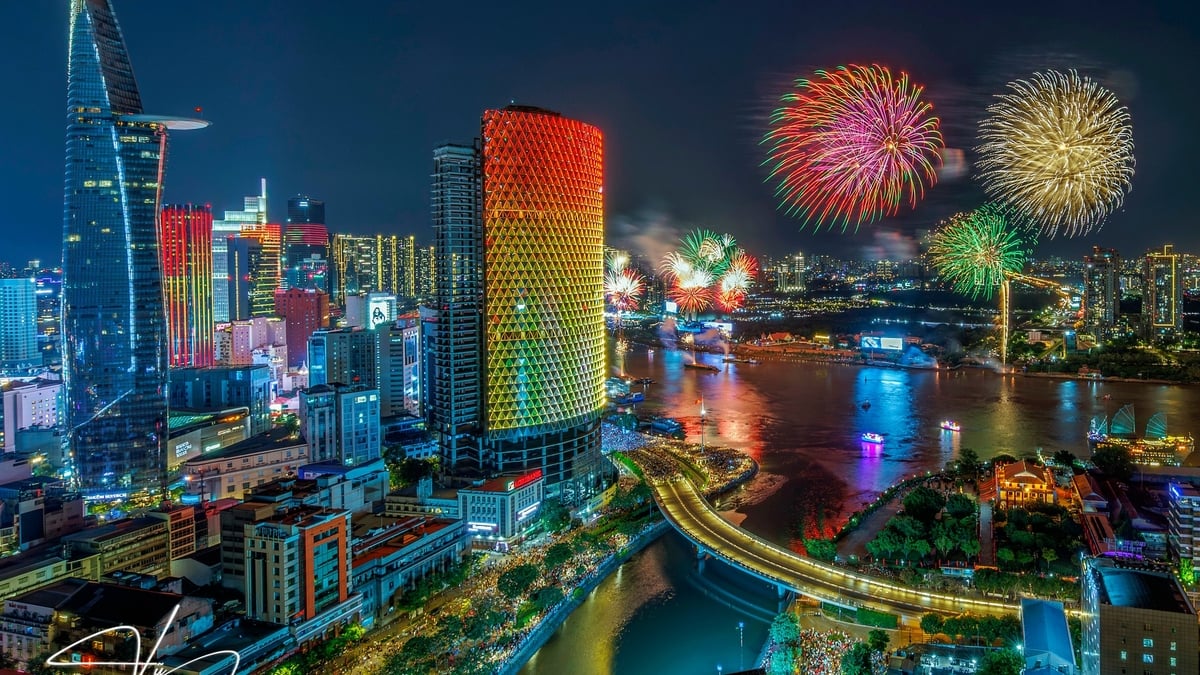
![[Photo] Solemn opening of the 9th Session, 15th National Assembly](https://vphoto.vietnam.vn/thumb/1200x675/vietnam/resource/IMAGE/2025/5/5/ad3b9de4debc46efb4a0e04db0295ad8)
![[Photo] President Luong Cuong presided over the welcoming ceremony and held talks with Sri Lankan President Anura Kumara Dissanayaka](https://vphoto.vietnam.vn/thumb/1200x675/vietnam/resource/IMAGE/2025/5/5/bbb34e48c0194f2e81f59748df3f21c7)

![[Video] Official visit to the heart relic of Bodhisattva Thich Quang Duc](https://vphoto.vietnam.vn/thumb/402x226/vietnam/resource/IMAGE/2025/5/5/175524e8f81e423eb4042aea7a9b6def)
















![[Photo] National Assembly delegates visit President Ho Chi Minh's Mausoleum](https://vphoto.vietnam.vn/thumb/1200x675/vietnam/resource/IMAGE/2025/5/5/9c1b8b0a0c264b84a43b60d30df48f75)




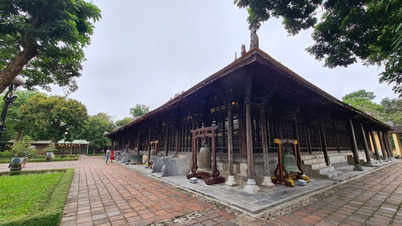






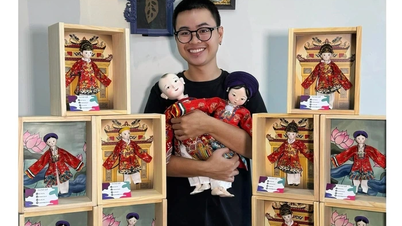






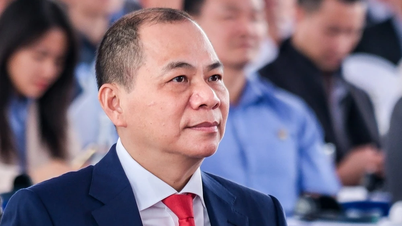









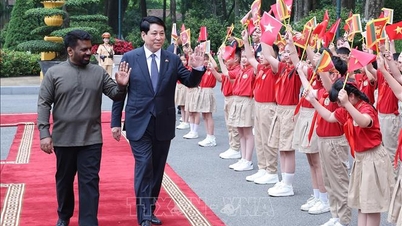

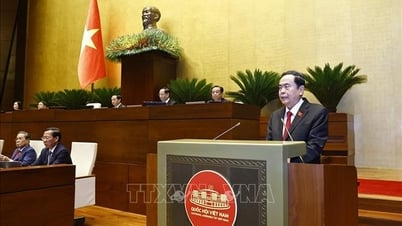
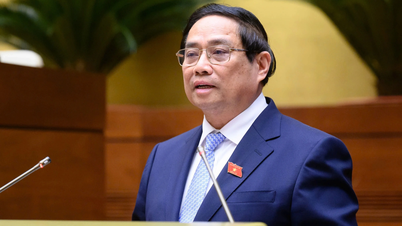
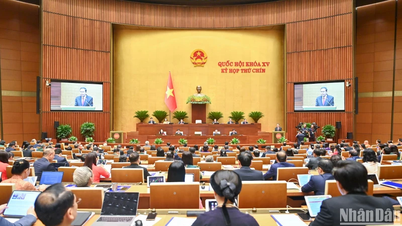


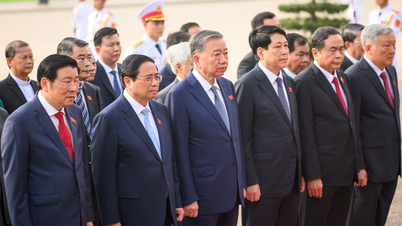






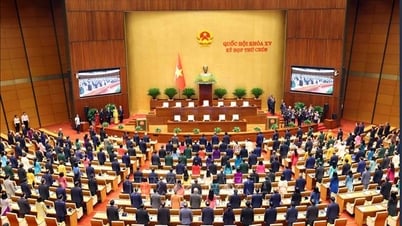









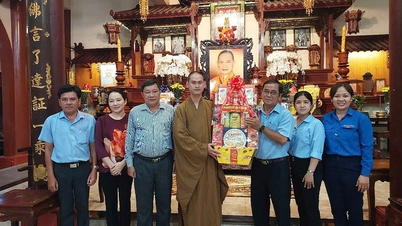
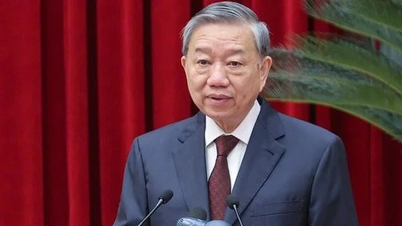












Comment (0)